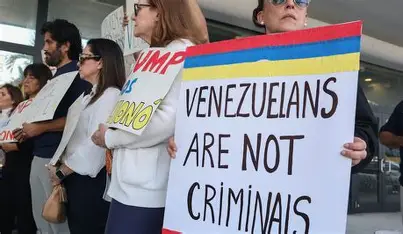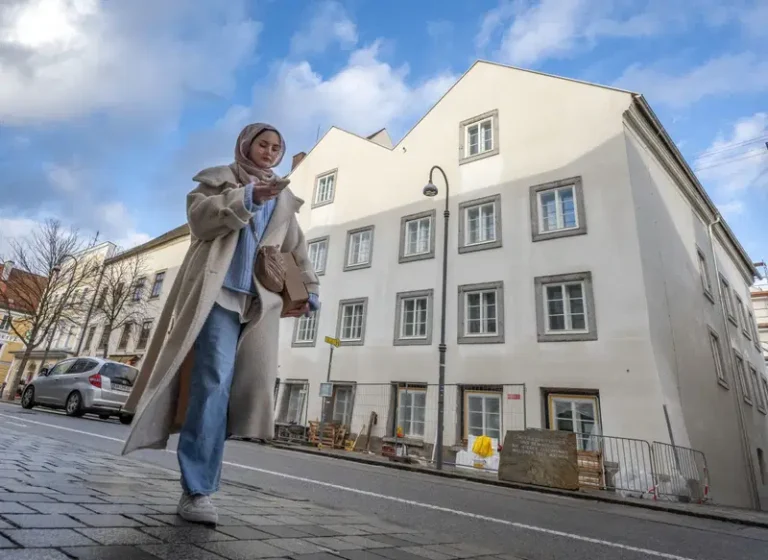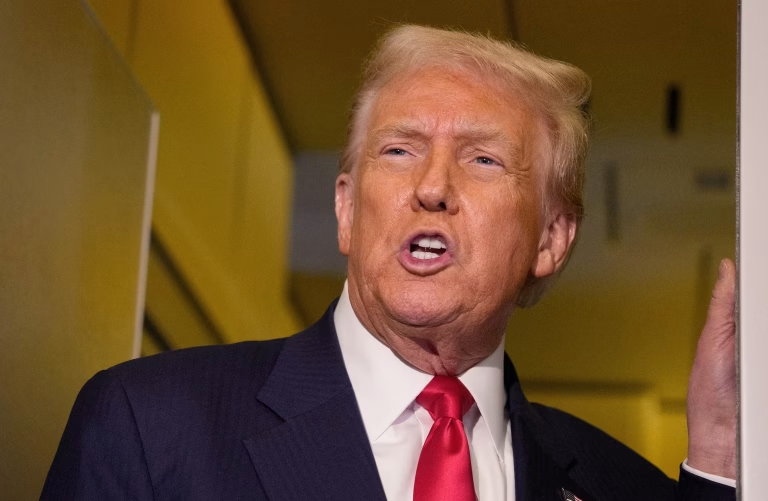
Increasing attacks on government facilities, especially offices of the Independent National Electoral Commission (INEC) in the South East by criminal elements might affect the ability of the over 10million registered voters in the zone to fully participate in the 2023 general elections, security experts, civil society organisations and residents have warned.
According to the INEC, there are a total of 93,469,008 eligible voters in the country. The five states of the South East – comprising Abia, Anambra, Ebonyi, Enugu and Imo – boast of 10,907,606 registered voters. However, almost a million permanent voters’ cards (PVCs) are yet to be collected in the zone, according to a data analysed.
In a series of Focus Group Discussions (FGDs) conducted by Daily Trust on Sunday in Anambra and Imo states, participants drawn from civil society organisations, non-governmental organisations, women groups, media, as well as registered voters, noted that insecurity posed the greatest threat to the conduct of the 2023 general elections in the zone.
They agreed that it is also affecting the ongoing collection of voters’ cards in the area.
While the perpetrators of the attacks are often described as unknown gunmen, the self-styled spokesperson of the Indigenous People of Biafra (IPOB), Simon Ekpa, has claimed that no election will be held in the geopolitical zone in its bid to force its session agenda.
Attacks on INEC facilities
In December 2022, the electoral commission noted that it suffered a total of 50 attacks between 2019 and 2022. More than 70 per cent of the attacks occurred at its facilities in the South East and South South. Twenty of the 50 incidents were by unknown gunmen and hoodlums.
The commission considered the attacks recorded in 2022 as systematic and coordinated.
“They are targeted at derailing our commission from conducting free and credible elections,” it noted.
A day after the report, unknown gunmen attacked INEC office in Orsu Local Government Area of Imo State. It was the fourth attack on the commission’s offices in Imo within three weeks.
A registered voter in Imo State, Emmanuel Chukwu, noted that voters in Orsu and Ihitte Uboma local government areas of the state were asked to proceed to the headquarters of the commission in Owerri to collect their PCVs because of safety concerns.
As he observed, many eligible voters are unwilling to undertake the long distance to the INEC head office in Owerri because of transport cost and risks involved.
A participant from Owerri North Local Government Area, Vincent Aholu noted, “In my area, Akwakuma of Owerri North, people are afraid to come out and exercise their franchise in the forthcoming general elections because of kidnapping, killings, unwarranted arrests and detention by security agents and summary trial.”
It is feared that if insecurity is not checked, elections might not be held in some areas in the zone, including most polling units in the Anambra South senatorial district.
Places like Ihiala, Aguata and some parts of Nnewi local government councils have been hotbeds of attacks in recent times, according to the respondents.
Anthony Okafor of Anambra Grassroots United (AGU), one of the civil societies in the state, warned of possible low voters’ turnout during the polls.
“The people in the areas where there is insecurity might experience voters’ apathy and poor turnout. Some people will not likely come out because they will be afraid that the miscreants will come and disturb them,” Okafor said.
At one of the sessions, a voter from Umuenze in Anambra, Lucy Okechukwu, noted that the local government area was also prone to attacks because of its proximity to Aguata, where the security situation is tense.
Participants also believed that insecurity would affect the distribution of electoral materials in areas that are prone to violence.
Patrick Chimezie, a registered voter from Ihiala, who noted that there was a serious security threat in the area, admitted that it would be difficult for INEC to distribute election materials in the area.
“We should admit that it is not going to be easy in the area during the election. Honestly, there will be apathy on election days. The challenge is, however, not going to be only on election days. It is likely going to start with the distribution of election materials. The election materials will be conveyed by human beings, possibly by corps members. Bringing these materials to the area will not be an easy task,” he said.
The South East also has a record of poor voters’ turnout during general elections in the country.
While the general voters’ turnout in 2015 and 2019 general elections were 43.65 per cent and 34.75 per cent respectively, the average voters’ turnout in the South East was 37.31 per cent and 23.29 per cent respectively
A participant from Okigwe zone in Imo State, Greg Nwachukwu, noted that on arriving the venue of the discussion, words got to him that an intending couple, along with the groom’s brother who was conveying them on a tricycle to buy items for their marriage ceremony, were killed. He stressed that unless killings were stopped, the possibility of holding elections in Okigwe zone was very remote.
It was also highlighted that the rise in the activities of unknown gunmen in the zone has led to a spike in the use of illicit drugs and cultism.
“The situation will not affect the area I am staying in Awka, but the cult war in the area is getting intense every day. In the last few days, more than 10 people have been reportedly killed. With that unchecked, people might be afraid to cast their votes,” a woman leader from Anambra, Mrs Nkiru Nwagbo said
Physically challenged, women most vulnerable
The participants also noted that the groups that would be mostly impacted by the insecurity in the state are the elderly and physically impaired.
They added that some of the aged people in the community had made it clear that they won’t go out on the day of voting because in the case of an outbreak of violence, they may not be able to escape.
“They are afraid that they may lose their lives; not only that, even their sons and daughters have already advised them to steer clear from polling booths. And this has become problematic despite the fact that the president-general and the traditional ruler had taken it upon themselves to enlighten them. They are still pessimistic about their safety during the elections,” Okechukwu noted.
A gender and rights activist, Angela Nkwo, noted that women may be the most disenfranchised during the 2023 elections as they constitute the most vulnerable group in the process.
She said, “First of all, we must take into cognizance that in any conflict, women and girls are the worst hit. We suffer untold harm sometimes that comes with psychological breakdown. In terrible situations, we could be taken forcefully as wives or sex slaves. So, we are concerned that with the current state of insecurity, a lot of women may not show up because of their safety. They want to be assured that their safety is guaranteed.”
Mistrust fuelling rise in criminal activities
Most of the participants said the fear in the zone was heightened by mistrust as the people have lost confidence in the government and security agencies. They alleged that security operatives are hardly present in areas prone to attacks, forcing the people to seek protection from non-state actors.
“The police and army are totally absent in my area, to the extent that some powerful boys formed themselves into groups and offer security services to people. It will not be a surprise if they constitute nuisance during the elections in the area. People who came home during the Christmas and New Year celebrations hired them as guards. Even people who had burial or marriage ceremonies engaged their services.
“So, if there are no police or other security agencies, how do you organise a successful election where these people hold sway?” A voter from Orsu, Uchechukwu Uzoma queried.
He argued that instead of building trust with the people, security operatives oftentimes randomly arrest residents during attacks.
‘How government, community leaders can address insecurity’
While calling for improved security presence, they urged the government not to militarise elections in the zone as it would discourage the electorate.
They said security agencies should gain the trust and confidence of the people by flushing out criminal elements within the society, citing how the Goodluck Jonathan administration dealt decisively with insurgents in the North East in the buildup to the 2015 general elections.
They were of the view that security agents must partner with the communities through effective civil-security relations.
A voter from Nwangele, Imo State, Marcel Ďuru, said the National Drug Law Enforcement Agency (NDLEA) should intensify its war against the sale and consumption of illicit drugs in the zone.
He advised that both the state and federal governments should engage the agitators while increasing the level of advocacy on the importance of the electiosn in various communities through traditional rulers, youth and women leaders.
Nkiru Nwagbo further noted that the 2021 governorship election in the state would have been marred if not for the statement issued by IPOB’s spokesman, Emma Powerful, that the group didn’t call for a boycott of the exercise.
The participants were unanimous in their agreement that the National Orientation Agency should wake up from its apparent inertia. They agreed that the agency had failed in carrying out their responsibilities.
The convener of the Recover Nigeria project, Awka, Comrade Osita Obi, said government should reach out to troublemakers because they are known and among the communities.
“Some of us here are Biafrans. I am one of them but not on the field. They are living among us; we know some of them. The government can reach them if they want. The government should not use force on them because any attempt to use force will create more problems for the elections.
“Government should rather invest more in electoral education through advocacy to let the people know why they must come out to vote. They should be told that the elections are part of the process to address their needs,” he noted.
The chairman, Police Community Relations Committee, Imo State, Chima Chukwunyere added, “Community leaders should educate them about the elections because if they do not participate they will be the greatest losers because other people will vote for the people who will decide their future.”
The participants suggested that the people, with the guidance of community leaders, should set up vigilante groups in their localities.
While suggesting a strong liaison with security agents, they contended that nobody could guard the communities more than the locals.
They also warned that politicians should be dissuaded from spreading hate speech.
One of the participants added, “All said and done, INEC has a critical role to play in the success of the elections. If they compromise the process, there is nothing any other person can do.”
This report and the Focus Group Discussions were supported by the Centre for Democracy and Development.
(TNT)







761120 538383Hi there, just became aware of your blog by means of Google, and discovered that its truly informative. Ill be grateful should you continue this in future. Lots of men and women will benefit from your writing. Cheers! 402381